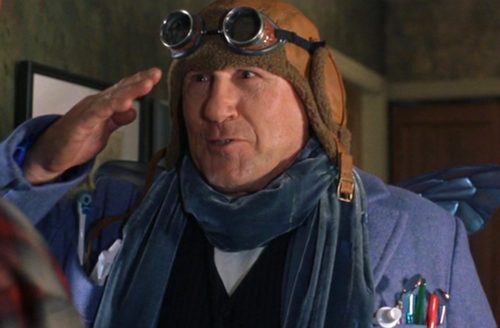Telling Truth or Lies to Children: Parenting
Even though I’ve never met him, my brother from another mother Dr. Greg Barrett beat me yet again to writing another parenting article and literally took the words right out of my mouth: Telling truth or lies to children—being honest with your children.
So much so it’s going to be hard giving you my personal take on this important part of parenting without feeling like I’m just repeating what he said: whether or not to tell the truth or lie to your children.
The “Molinator” (Tooth Fairy) from the movie “Santa Claus”
And, yes, I know what Neil DeGrasse Tyson’s opinion is; however, being an astrophysicist makes him a smart man but neither a rocket scientist nor a parenting expert!
And, please, I’m not just talking about the “Claus,” Rabbit or Fairy; we’re going to talk about the big stuff.
Adoption, Death, Family Crisis, Divorce, Babies
At least consider telling the truth first
Whether to tell the truth or lies to children isn’t a slam-dunk question. Before we get too deep into the circuitous maze that is parenting, may I make a plea that we at least give lip service to being honest as the first line of importance in our discussions.
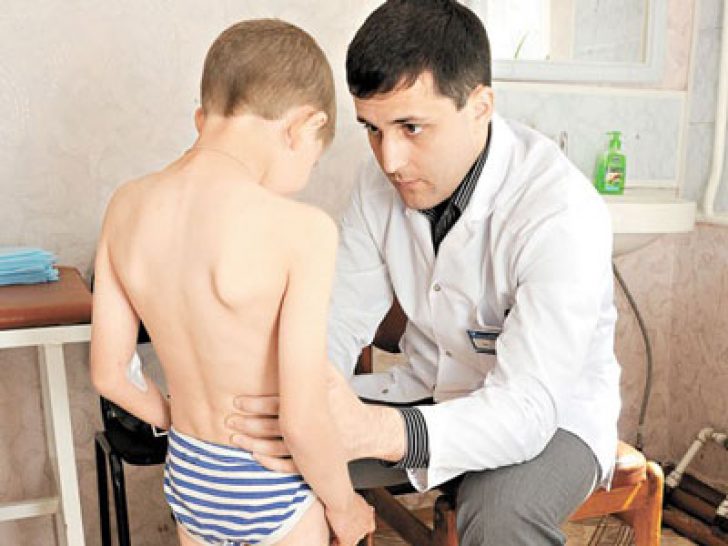
I can tell you for a fact that nearly all of the REALLY significant damaging situations I’ve counseled in have started out with attempts at “shielding” children from reality.
Often in reality though the words “shielding the children” is, in fact, a mere cop-out used for the fact that we’ve decided to take the lazy way out of a situation that makes us uncomfortable to discuss.
Thing is, the damage to the child/parent relationship usually goes beyond the mere falsehood told and destroys trust and many other aspects of relationships you never even considered. Nearly always, the relationship never quite “fits” like it used to.
“Let’s talk about this later,” is quite often a better answer than a lie, giving you a time to weigh all the options and even rehearse your presentation a little in order to make it as straightforward as possible.
Telling the Truth or Lies About Being Adopted
You’re probably not going to believe me when I say “let’s start with a fairly simple” topic for our discussion of “truth or lie”: Adoption.

To adults, adopting a child/baby is a Hugely intense process and momentous decision. You want EVERYTHING to go perfectly and without a hitch— within a nanometer of tolerance. And your visions have become so crystal clear in your mind that you’re easily able to pretend that you gave birth to the babe. Telling the child, as you may be thinking, “they are not ‘yours'” is the farthest thing from your mind.
BUT, the absolute fact is: THEY ARE YOUR’S. TRULY, in the eyes of everything that counts, when you adopt you’re gonna love, you’re gonna pay and most assuredly you are responsible for the child’s future—be it success or failure. You’re gonna know it, you’re gonna feel it and the feelings of either guilt or pride will be the same as those produced by DNA matches.
Why do I call it “fairly simple?” Because the most often occurring timing and topic are more simple than those below. You may think “I’ll wait until he/she can understand”; well when, in your mind will that be?
When he asks you why the sky is blue do you think he’ll grasp the full principles of physics in your answer? Of course not, he doesn’t need to he’s got you to add further information as he needs it.
The initial explanation needs but to be very simple. AND it’s even better if you start the discourse when he doesn’t understand it fully. Its shows you’re taking it matter-of-factly, without burden and when someone else tells him (and they WILL tell him) the child will handle it the same way. And besides, he then always knows where he can get more information about it when he needs it.
Nearly always, if you don’t have a problem with understanding the concept and have a plan for going forward, neither will they. And: the sooner the better.
Truth or Lies About A Death In Family
As parents you’re most likely old enough to have had many years worth of experience with the concept of death and dying. At least enough to have decided what you and your religion’s concepts surrounding death and the “hereafter” are like; but, that still doesn’t mean that you can easily explain the concept to a child in any number of different ages.
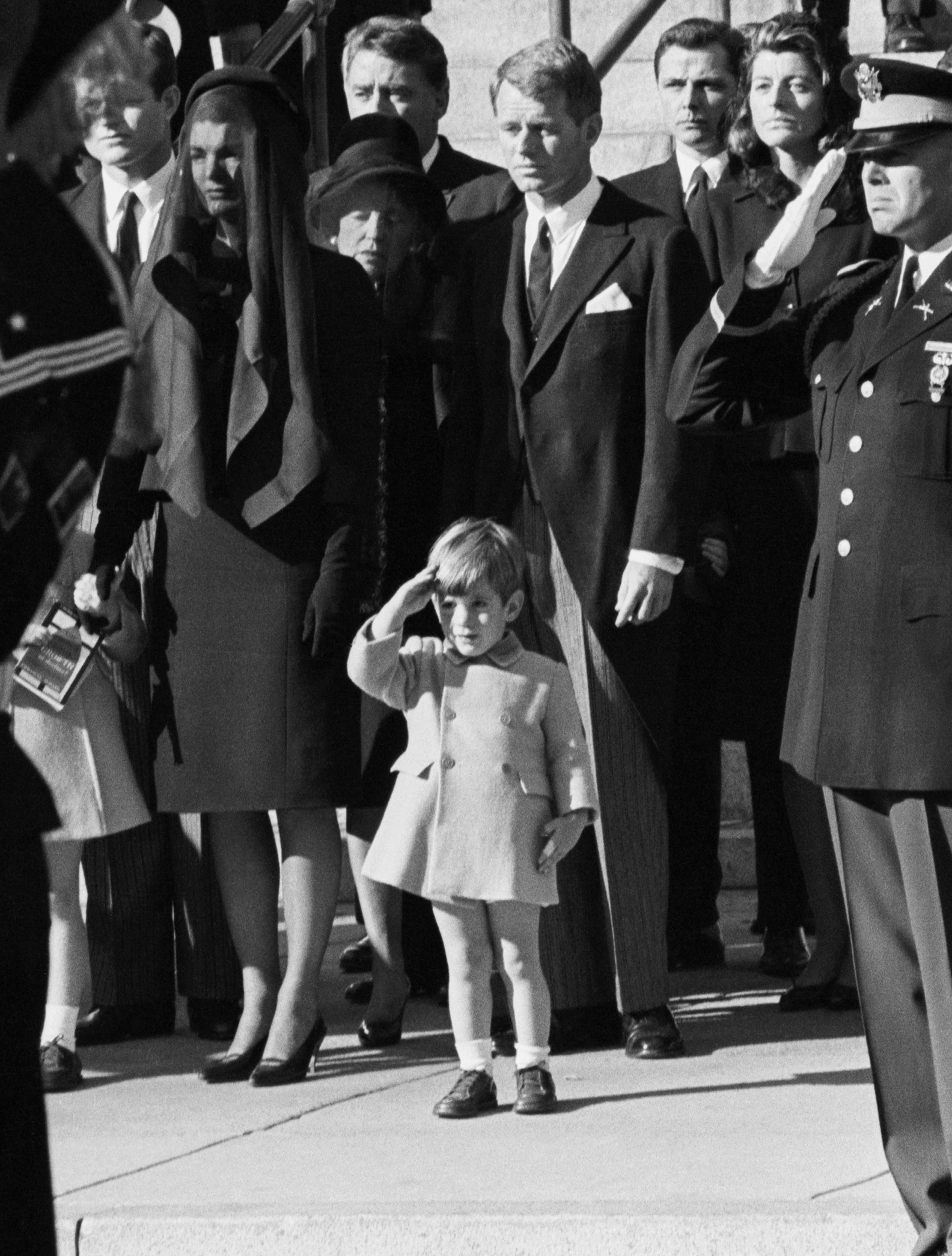
An older child might merely need someone to understand their feelings and reassurance that you really believe what you’ve previously taught them; and to be sad with them which will validate their feelings.
Youngsters who’ve never had any discussion about death however will need some sensitive explanation. How do you do that?
Well, you might be able to discuss it with your peers and older children using euphemisms like “Dad passed last night”; but, a younger child needs more than “Grandma went to sleep” or “Bobby went away for awhile.” Even trying the “daddy will always be with us” statement needs more careful wording in order to not create even more problems through misunderstanding.
You don’t want the little one forever afraid to “go to sleep” or panicked when dad “goes away” on business or wondering if grandma is in the closet or under the bed being “always with us”; which truly, I’m afraid, can and frequently does happen.
What can you say? Simple. Use the original and most simple word: “dead.” I know you can say it without any emphasis or scariness in a matter-of-fact tone. “Grandpa is dead son.” That’s all that’s needed… don’t make it complicated… keep it simple. And of course it’s the most honest way you can answer.
Then, of course, rapidly follow with the most kind explanation you best can, to specify within your own personal spiritual context that they will be missed and remembered for the part they played in your life; and that we can show them honor and respect in our memories and by what we choose to do in our life, even though they’re not with us.
Let them ask questions and ascertain that their understanding is complete, for their age, letting them know you can talk again about it any time they want. Just know that there is no one pattern of grief for children and how they react may confuse you. Just make sure it isn’t because you haven’t tried to explain it.
Attempts at shielding children from the truth more often than not actually causes greater fear in their minds.
Family Crisis, Loss of Job

Frankly I don’t know why this is still happening. For perhaps a century, ever since the TV was born and before that in the movies, hundreds of shows have shown families in crisis in one way or the other and them managing to make it through, finding that people have worked together and even become more united.
Movies need conflict which gets resolved, so might be bizarre; but, the resolutions and outcomes are real. Crisis really can bring people together and families can be stronger and more united by the experience.
It shouldn’t be a real stretch to use the many examples we’ve seen in the media when we experience crisis for ourselves; but, too often children are told “daddy has just decided to stay home for a few days.” Pride, ego, the old “shielding the children again?” The truth stings but the one things kids know is routine and lies don’t fly… not with a smart kid they don’t.
In fact this is a case which is ripe for what is known as “conversion reactions.” If a parent or other loved one has symptoms of a major illness, the subconscious stress in a child may generate similar and very real symptoms in a child. A mother with fear of foods that cause major symptoms can produce a child fearful of either the same things or of being away from the parent. A father needing prostate surgery for cancer can produce a child who begins wetting the bed.
Truly, the anxiety that a child assumes from all the whispered conversations, odd looks at each other, unexplained changes in routine will be FAR, FAR more serious than the actual crisis and the resentment longer lasting. And, tragically, needlessly avoidable.
Trust me, there is no other better way to deal with a crisis in the family than telling the truth while drawing the family together. Be concise and factual in explaining so that they understand clearly without any false assumptions. Acknowledge sacrifices that will need to be made and allow suggestions of things that might help. You know, like a team.
At very least the event will be a good lesson about life. You teach children about how to solve their own problems. This time you can show them you follow your own advice: perseverance, adaptability, tenaciousness, follow-through, bouncing back, teamwork, asking for help… all are traits important to learn and the way to solve problems.
Truth about Divorce or Lies
Most of what I know about helping a child through a divorce came from a 10-year-old holding me around my neck and weeping into my starched, white Navy uniform. Finally on the third visit he trusted me enough to blurt out “I’m just a part time kid!”
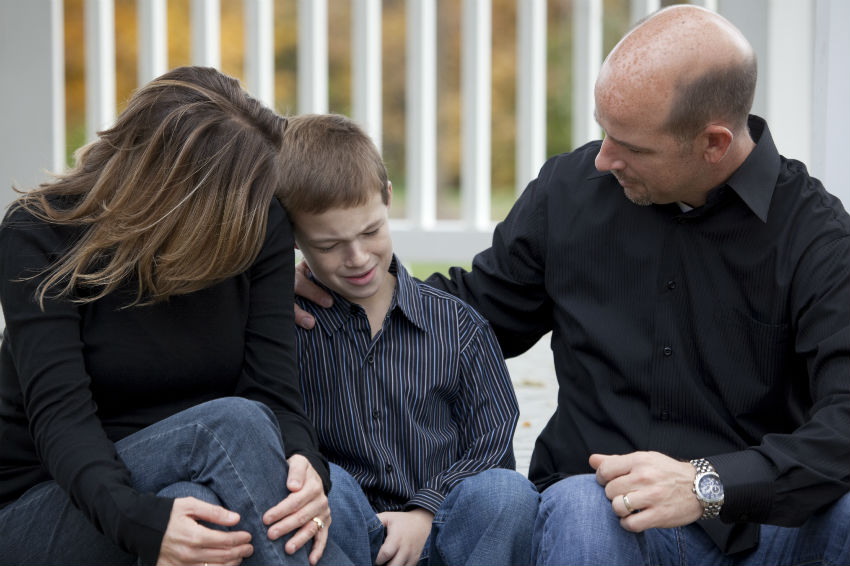
Over the next couple month’s visits he and I learned about what a child can go through, how they can interpret it and what helps to make it through the sadness.
As mentioned above, lies don’t help and merely make matters worse; but, while sometimes in other situations parents get away with being non-communicative, you CANNOT do it with impunity when one of you is essentially leaving his/her life—without heaping tons of guilt on them! And they will assume massive amounts of basically your guilt onto themselves. “If only I had been a better boy daddy wouldn’t have left.”
I realize the “Big D” is incredibly hard to discuss BUT it is YOUR duty and you must make it through it—IF you want even a little to keep your child from assuming they were to blame.
I cannot say it any better than Dr. Barrett did: “sit down together with your children and let them know that it is sad for everyone but you are still their mother and their father, you love them with all your heart and always will, you completely understand how hard this will be for them at times but you will try to do everything you can to make it as easy as possible and, most importantly, make it absolutely clear that they are in no way responsible.”
If there is any area where you would “do it for the kids” this would be the one; and I’m assuming you’ve both made every effort to reconcile differences and rectify any mistakes made. At least a life-time commitment was made after-all; so, a decision to separate should be agonized over and not entertained lightly, especially with children involved.
But, if the effort doesn’t heal the relationship the long-term effect of a toxic relationship can make divorce seem benign in comparison.
And, again to quote Dr. Barrett: “Your relationship is going to be their blueprint for a marriage and how a husband and wife should treat each other, so think about the message you are sending. And remember—you may be able to fool a lot of people, but the one person you can NEVER fool is your child.”
Exceptions: Parental childhood illicit behaviors, Santa Claus, Tooth Fairy, Easter Bunny
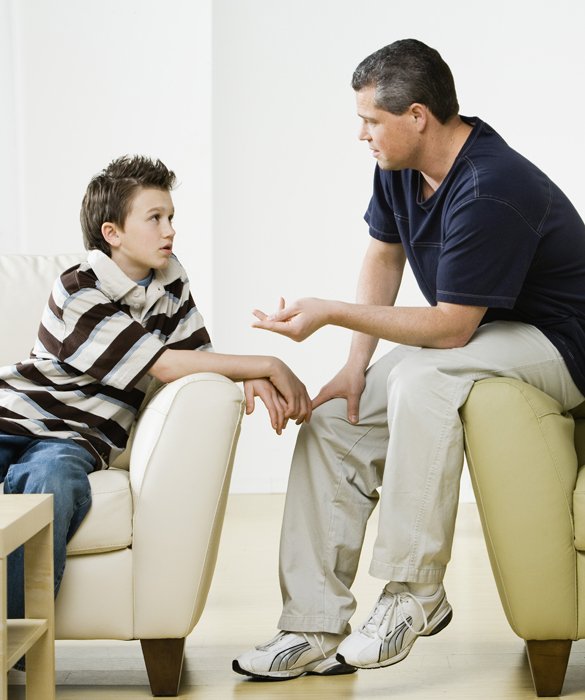
If you’re the type who wants to argue that “there is always an exception to every rule,” here it is: when your nosey adolescent asks you about ANY illicit behaviors you may or may not have done back when you were single and out sowing oats—then, you can lie!
You can tell them all you like about the 3 foot snow drifts you had on your walk to school (uphill… both ways); BUT it is critical that your child has a good role model in their life. And, like it or not, YOU are elected to be it—being pretty much the only one who cares that he/she has one. Your personal past history is really none of their business; and in only a very rare and limited circumstance will revealing your past poor life-choices be of benefit to them.
Don’t get drawn into the adolescent behavior of trading stories with your teen. Yes, the exception to this rule might be IF recounting a specific mistake you made, which has been regretted, can be used as a cautionary tale. But, overall, in the case of parental mistakes, being totally transparent serves no useful purpose. Believe me, they will discover more than enough and then some on their own.
Yes Neil, There Is A Santa Claus
Now. Just for completeness sake. With all due respect Mr. Tyson, the fairy, bunny and Santa are enriching mythological creatures and absolutely no earthly reason exists to deprive your children of them.
Almost all children find joy in the celebration; and, when mature enough, even enjoy finding out the deception and the love that went behind it. In the thousands of children I have seen and gotten to know, I’ve never seen one who didn’t eventually learn the difference between myth, legend and reality… or, didn’t even decide to continue the “enrichment” for their own children. (present company excepted, of course)
Yes, I know my thousands of observations doesn’t make it a universal truth any more than your opinion does; but, I bet I stand a better chance of being statistically significant than you do.
At any rate. Even those of you who have gone to the trouble to rent reindeers, climb on the roof, play sound effects or spread soot in front of the fire-place and on presents; when they do come to you questioning their existence you must let them know the truth.
When they find out it was their mom and dad who were doing all those good things—without even wanting to take credit; is there REALLY any better thing to teach them than unrewarded giving?

